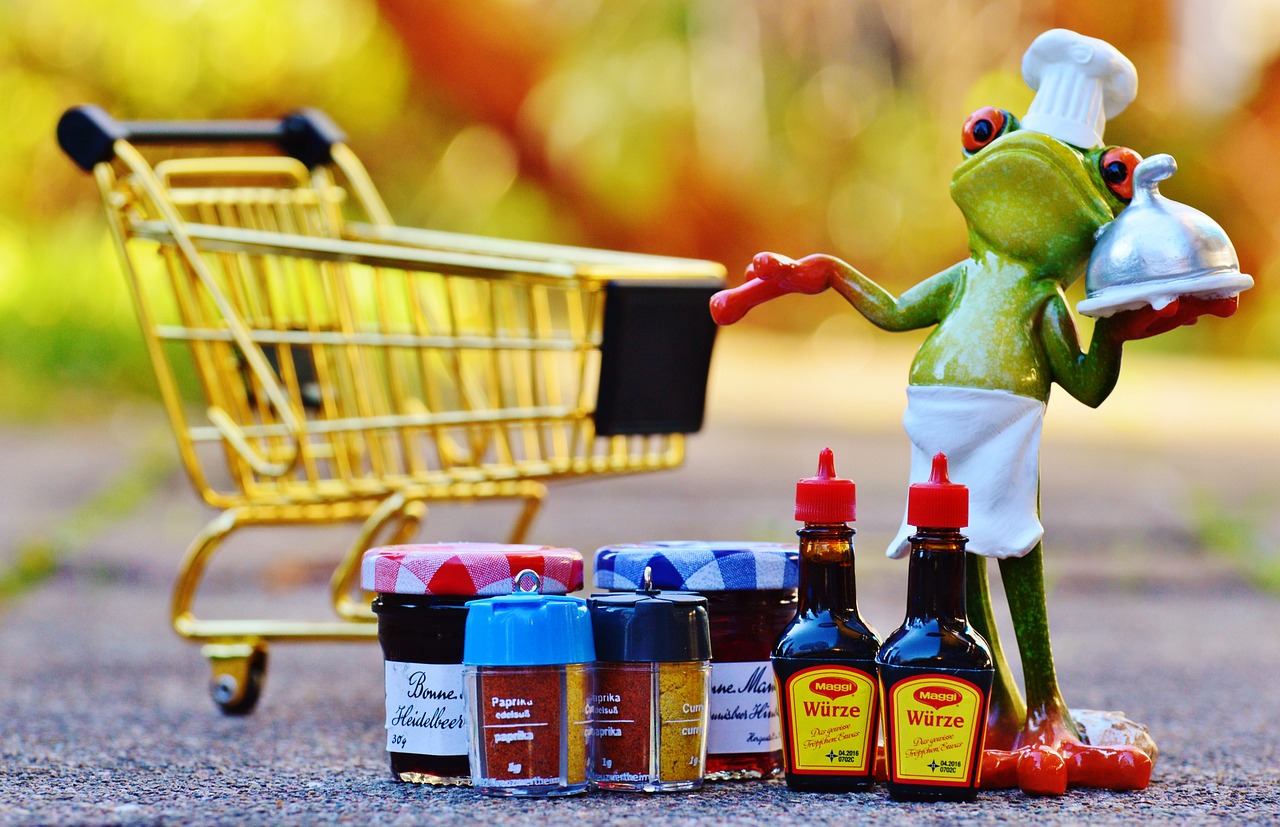
Dealing with Limited Availability of Animal-Friendly Products: Where to Shop and How to Find More Options
The demand for animal-friendly products has grown exponentially over the past few years, driven by consumers' desire for more ethical, sustainable, and cruelty-free options. However, one of the challenges many people face is the limited availability of these products in some markets. Whether it’s personal care, household cleaning, or even clothing, finding ethical products can sometimes feel like a difficult task, especially if you live in a region where they aren’t widely available in stores.
In this article, we will guide you through strategies for finding animal-friendly products, where to shop, and how to expand your options by tapping into online platforms, local businesses, and more. With a little effort and awareness, you can source cruelty-free products that meet your ethical standards without compromising quality or affordability.
1. Why Are Animal-Friendly Products Less Available?
1.1. Market Demand
Despite growing interest in ethical consumerism, not all regions have fully embraced the shift toward animal-friendly products. In smaller or more remote markets, demand may not yet justify the availability of extensive cruelty-free product lines. Large brands may be hesitant to introduce ethical products in certain areas until there is a clear demand from local consumers.
1.2. Cost of Ethical Production
Animal-friendly products often come with higher production costs. The use of natural, sustainable, and ethical ingredients can be pricier than their conventional counterparts, making it harder for smaller companies to scale their products to widespread availability. While this may affect affordability, there are ways to find cost-effective solutions without compromising your ethical values.
1.3. Local Regulations
Some countries have stricter regulations regarding animal testing or ingredient sourcing. For instance, certain markets require animal testing by law for cosmetics, making it difficult for brands to label their products as cruelty-free. These regulatory hurdles may limit the availability of animal-friendly products, especially in markets where testing on animals is still a requirement.
2. Where to Shop for Animal-Friendly Products
If you find yourself in a region where animal-friendly products are limited, there are still plenty of shopping options to explore. From online platforms to specialized stores, finding cruelty-free options is more accessible than ever.
2.1. Online Retailers
The internet is a treasure trove of animal-friendly products, offering access to global brands that may not be available in your local stores. Shopping online gives you access to an extensive range of cruelty-free, vegan, and ethical products across multiple categories. Some popular online retailers include:
- Amazon: While Amazon offers an extensive product selection, it can sometimes be tricky to ensure you're getting truly cruelty-free products. Use filters and check customer reviews to verify the products' ethical claims.
- iHerb: Known for health and wellness products, iHerb carries a wide range of animal-friendly options, from personal care items to supplements.
- Thrive Market: Thrive Market focuses on healthy, sustainable living and offers a variety of cruelty-free products at competitive prices.
- LoveLula: Specializing in natural beauty and skincare, LoveLula offers an array of cruelty-free and vegan products from reputable brands.
- The Vegan Kind: This UK-based retailer is dedicated to cruelty-free and vegan products, offering everything from food to personal care items.
Shopping online also gives you the ability to compare prices, read product reviews, and check for certifications, ensuring you are getting what you need.
2.2. Specialty Stores
Many physical stores now specialize in eco-friendly, cruelty-free, and vegan products. Check if there’s a natural foods store, health and wellness shop, or eco-boutique near you. These stores often carry brands that prioritize ethical manufacturing practices. Some stores that are well-known for offering cruelty-free options include:
- Whole Foods Market: Known for its organic and natural product lines, Whole Foods carries several cruelty-free and vegan brands across beauty, personal care, and household cleaning.
- Trader Joe’s: Trader Joe’s has a range of affordable, cruelty-free personal care products.
- The Body Shop: A pioneer in the ethical beauty movement, The Body Shop offers cruelty-free and mostly vegan products in their stores.
- Lush Cosmetics: Famous for their handmade cosmetics, Lush is 100% cruelty-free and has a commitment to ethical ingredient sourcing.
2.3. Direct From Brands
Shopping directly from a brand’s website can often yield better deals, as many cruelty-free companies offer exclusive discounts, subscriptions, and free shipping. Brands like e.l.f. Cosmetics, Pacifica, and Burt’s Bees offer affordable animal-friendly options and often have exclusive deals for customers who buy directly from them. Signing up for newsletters or loyalty programs can also help you stay informed about sales and discounts.
2.4. Local Farmers Markets and Artisan Shops
Farmers markets and artisan shops are fantastic places to find handmade, cruelty-free, and often vegan products. Many small businesses prioritize sustainability and ethical manufacturing, and they may offer locally-made, high-quality products. Look for items like:
- Handmade soaps and skincare: Many artisans create cruelty-free, vegan soap bars, lotions, and skincare using natural ingredients.
- Organic cleaning products: Some small businesses offer eco-friendly and cruelty-free cleaning solutions made with simple, biodegradable ingredients.
- Sustainable fashion and accessories: Vegan leather bags, belts, and other accessories are sometimes sold at artisan shops, giving you ethical fashion choices.
Supporting local businesses not only helps you find unique animal-friendly products, but it also supports sustainability by reducing the carbon footprint associated with shipping.
3. How to Expand Your Animal-Friendly Product Options
If you’re finding limited availability in stores, it’s time to think creatively and expand your options. With a combination of online shopping, do-it-yourself solutions, and exploring global marketplaces, you can access more cruelty-free products.
3.1. Utilize Cruelty-Free and Vegan Certifications
Knowing how to identify certified cruelty-free or vegan products can simplify your search. Some reliable logos and certifications to look for include:
- Leaping Bunny: A globally recognized certification that ensures a product is cruelty-free at every stage of production.
- PETA’s Beauty Without Bunnies: PETA certifies that a product is cruelty-free and often provides additional assurance for vegan products.
- Vegan Society: This certification ensures that no animal-derived ingredients are present, and the product was not tested on animals.
When shopping online or in-store, look for these logos to make informed decisions and quickly identify animal-friendly products.
3.2. Create Your Own DIY Solutions
If you’re struggling to find animal-friendly products in certain categories, why not try DIY options? Many personal care and household cleaning products can be made at home using simple, natural ingredients. DIY solutions give you full control over what goes into your products, ensuring they are cruelty-free and vegan.
DIY Personal Care Recipes:
- Coconut oil and baking soda toothpaste
- Apple cider vinegar and essential oil toner
- Coconut oil moisturizer
DIY Household Cleaning Solutions:
- Vinegar and lemon juice for natural surface cleaners
- Baking soda for scrubbing tough stains
- Castile soap for all-purpose cleaning
3.3. Social Media and Online Communities
The rise of ethical consumerism has also led to the growth of online communities dedicated to cruelty-free living. Many social media platforms have groups, pages, and influencers that focus on cruelty-free product recommendations. Platforms like Instagram, TikTok, and YouTube are great sources of product reviews and ethical shopping tips.
- Follow cruelty-free influencers: Influencers who specialize in ethical beauty, fashion, or lifestyle often share discount codes, product recommendations, and where to find the best deals on animal-friendly products.
- Join ethical consumer forums: Communities like Reddit’s Vegan Beauty or Cruelty-Free Beauty provide recommendations, product reviews, and advice for navigating limited product availability.
3.4. International Shipping and Global Marketplaces
Some brands that are not available in your local stores might offer international shipping, expanding your product options. Websites like LookFantastic, YesStyle, and BeautyBay carry cruelty-free products from a wide range of international brands and offer affordable shipping options to various regions. Keep in mind that shopping internationally may come with longer shipping times, but it can be a great way to access a wider selection of ethical products.
4. Overcoming Barriers to Finding Animal-Friendly Products
4.1. Affordability
One of the most common barriers to adopting animal-friendly products is the misconception that they are always more expensive. However, with the increase in demand, many brands are now offering affordable cruelty-free options. By using the strategies mentioned above, such as shopping online, buying in bulk, and utilizing DIY options, you can save money while making ethical choices.
4.2. Accessibility
In areas where cruelty-free products are hard to find, shopping online or supporting local artisans can help fill the gap. The availability of global marketplaces and online retailers has made it easier than ever to access cruelty-free products, even in remote regions.
4.3. Misinformation
It’s important to be aware that not all products labeled as “natural” or “organic” are cruelty-free. Understanding the difference between cruelty-free, vegan, and natural products is key to ensuring you’re making ethical purchases. Look for trusted certifications and do research before purchasing.
Conclusion
Finding animal-friendly products can be a challenge, but it’s not impossible. With a combination of online shopping, local businesses, DIY solutions, and an understanding of ethical certifications, you can overcome the hurdles of limited availability. By supporting cruelty-free brands and making informed decisions, you contribute to a more ethical and sustainable world—without sacrificing quality or affordability.
